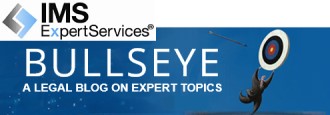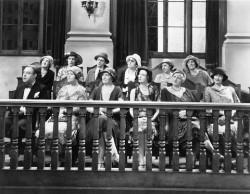Technology at Trial: Geek or Meek? |
|
Reprinted with permission. IMS ExpertServices periodically sends me e-mails that highlight recent key court cases that can significantly affect the effectiveness of expert testimony, both for the plaintiff and for the defendant. You need only scan the headlines I post daily to know the importance of effective legal representation when intellectual property (IP) is being contested. This article by Annie Dike, writing for IMS ExpertServices, discusses how the use of technology might positively or negatively affect the jury, depending on the demographic represented. Her mention of the 'holey-shoed' lawyer trick, which I had not heard of, to appear humble and hopefully illicit the sympathy of jurors, might be as ineffective with Millennial type panel members as would pulling out an old-fashioned easel and paper to illustrate a concept. In a world of 3-D printed mock-ups of crime scene or patent infringement 'evidence,' legal teams must more than ever carefully consider their audience's potential response to strategies. It wouldn't surprise me to learn that some law firms use a tag team approach where granddad and junior share the courtroom floor with similar versions of the same pitch in order to effectively satisfy a jury comprised of people representing multiple generations. Technology at Trial: Geek or Meek? Posted by Annie Dike, Esq. December 10, 2015
We recently explored the power of 3D printed evidence. It seems these days you can (pretty quickly, easily and affordably) "print" an exact, to-scale replica of virtually anything - tiny, minute parts of complicated machinery, human body parts, scene reconstructions, you name it. Such evidence can be incredibly compelling. Ironically, however, in that analysis we compared the first version of "3D evidence" to the shoebox dioramas we all remember making in school. While 3D evidence is certainly intriguing and impressive, it makes us wonder whether it might be overkill. Is it possible, when juxtaposed with a holey-shoed attorney, crumpled tie and hat in his humble hand, that a shoebox diorama might actually be the piece of evidence that wins the case, purely because it's simpler? We are all sensitive to the appearance of having six pin-striped suits sitting at our table when the other guy comes in with just his smile and a briefcase, but should we feel the same about technology? Can a fancy video animation come across as the sea of pin-striped suits in your corner? Or, has technology become so engrained in our everyday lives that jurors expect it? They carry and use a phone every day that is one thousand times smarter and more efficient than the original IBM computer. Does the attorney who props an over-sized legal pad up on an easel and begins writing on it with a fat Sharpie look like your grandpa who doesn't even know how to text? What were those special jumbo-dial phones that were specially made for senior citizens? Ahhh, yes. The Jitterbug. It's tagline? "A simple cell phone made for those of us that grew up when phones were connected by wires." When facing twelve twenty-something jurors, their smart phones buzzing in their pockets, is that necessarily a good thing? Or might they be thinking you're packing a Jitterbug in your own wrinkled suit pocket and might that affect their trust in you in trying to present a case in today's ever-changing, fast-paced iWorld? Is it still an advantage to be seen as "humble and simple, without sophistication?" That may be hard to answer and will admittedly depend on a number of factors ─ the most important of which is likely the relative age and sophistication of your jury pool. But, whether to use technology at trial is not a decision you can make after the jury has been selected. You have to go with your instinct at the outset. While cost is always an issue (some trial technology consultants can charge up to $250/hour to sit every hour of trial with you just to handle those pesky rewind, replay issues), let's cast that factor aside for the moment simply for the sake of debate. We're curious how you view technology at trial these days. Some find technology can be helpful and persuasive. Others find it distracting and feel it interferes with their ability to connect with the jury. We always enjoy a good, healthy discourse. What's your stance? When it comes to trial technology, are you geek or meek? --- Add comments This article was originally published in BullsEye, a newsletter distributed by IMS ExpertServices™. IMS Expert Services is the premier expert witness search firm in the legal industry, focused exclusively on providing custom expert witness searches to attorneys. To read this and other legal industry BullsEye publications, please visit IMS Expert Services' recent articles. For your next expert witness search, call us at 877-838-8464 or visit our website. Other IMS ExpertServices BullsEye and Expert Library Articles on RF Cafe:
Posted January 29, 2016 |
|


 You've likely heard the story ─ the
You've likely heard the story ─ the